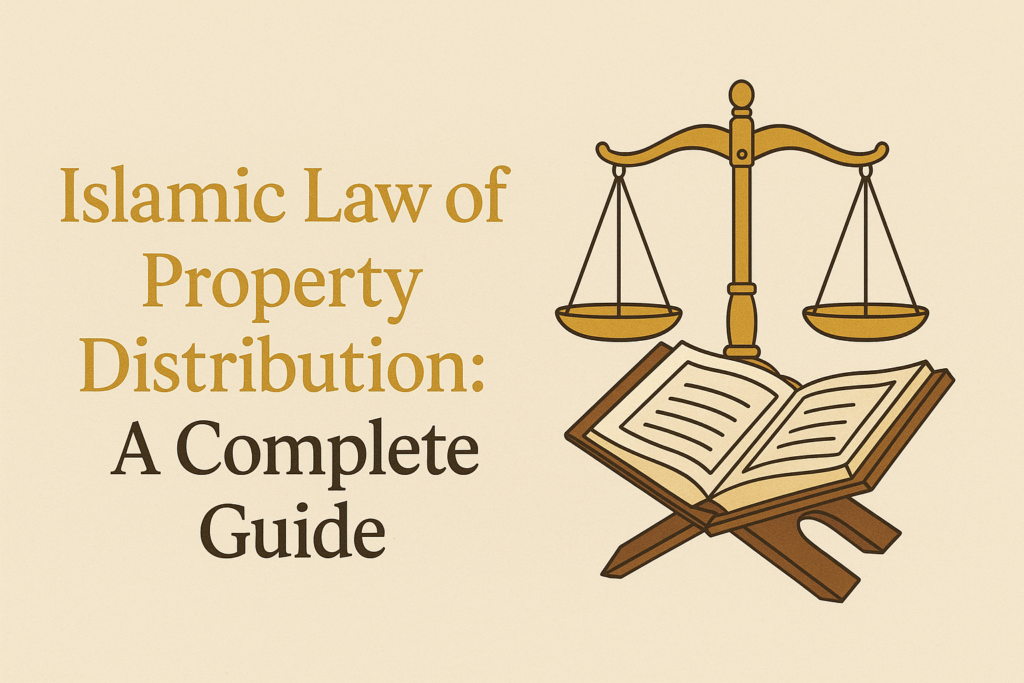
Islam places great value on how property is distributed after someone passes away. Inheritance is seen as both a religious duty and a key social responsibility. The rules aren’t just about counting coins or dividing land—they’re about following divine commandments. Every detail of inheritance law in Islam points to a deeper message: wealth is never truly owned but rather entrusted to humans by Allah, with careful guidance on its next destination.
Foundational Principles of Islamic Property Distribution
Islamic inheritance is built on clear sources and concepts. The Quran and the sayings (Sunnah) of Prophet Muhammad provide the core laws. The main framework for sharing property is called Fara’id, a system that sets out fixed shares for certain relatives. In Islam, property isn’t a personal right to do with as one wishes. Instead, it’s a trust from Allah, and its distribution is an act of obedience.
Quranic Verses and Core Legal Sources
Islam’s primary legal reference for inheritance is Surah An-Nisa in the Quran. These specific verses outline how much each heir should receive and form the basis of all further legal thought. Alongside the Quran, the Prophet’s sayings and Islamic jurisprudence (fiqh) clarify details and solve new questions. For direct references to the sacred texts and more practical examples, you can see the Book of Fara’id.
Property as a Divine Trust
The unique concept at the heart of Islamic property law is that wealth only passes through our hands. It isn’t absolute personal ownership. This shapes how heirs receive their shares—no one can claim more than what is set by God. Ethical distribution matters just as much as legal accuracy, reminding families and executors that inheritance is a sacred trust.

Key Rules and Process of Estate Distribution in Islam
When a Muslim dies, there’s a careful process of dividing assets, guided by clear priorities and strict rules about who gets what. The process is both logical and rooted in compassion.
Order of Distribution: Debts, Funeral, Bequests, Heirs
There’s an established order for dividing assets:
- Debts and funeral costs come first.
- Up to one-third of the estate can go to bequests (Wasiyyah), but these cannot benefit any fixed-share heirs.
- The remainder is divided among heirs who qualify under Islamic law.
A quick look at this sequence shows the system’s fairness and orderliness. For a detailed breakdown, see Property Distribution in Islam.
Fixed-Shares and Hierarchies of Heirs
Islamic law sets specific shares for close relatives. Spouses, children, and parents always have a guaranteed portion. For example, a daughter generally receives half the share of a son. Spouse shares change depending on whether the deceased leaves children. For more on how these shares are calculated, How to calculate inheritance in Islam has practical examples.
Exclusions and Ineligibility
Some relatives are ineligible for inheritance, such as illegitimate or adopted children (in the legal sense), and non-Muslims. The logic is rooted in family protection and religious requirements, as discussed in Islamic inheritance jurisprudence.

Comparing Islamic and Western Property Distribution Laws
Understanding Islamic rules is easier when you compare them to Western norms. The differences come from deep philosophical roots and shape how families handle inheritance.
Religious and Philosophical Foundations
In Islam, inheritance isn’t dictated by personal will, but by divine command. The shares are fixed, and the law protects vulnerable relatives. In Western systems, the individual decides how assets are split, limited only by secular law. These different approaches to legal authority shape both systems.
Flexibility and Estate Planning Differences
In Islam, your freedom to decide who inherits your property is limited. The law only allows up to one-third for bequests outside the fixed shares. In contrast, Western laws let you leave almost everything how you choose. This difference has a big impact on estate planning, often preventing family disputes and protecting dependents. For a real-world discussion of how these compare, see The Islamic Succession.
Conclusion
Studying the Islamic law of property distribution reveals a system focused on justice, compassion, and obedience to divine command. For modern Muslims, especially those living outside Muslim-majority countries, understanding these rules is essential for honoring religious duties and protecting their family’s future. Careful estate planning, in line with both Islamic and local laws, will help avoid confusion and ensure a fair legacy for loved ones.
